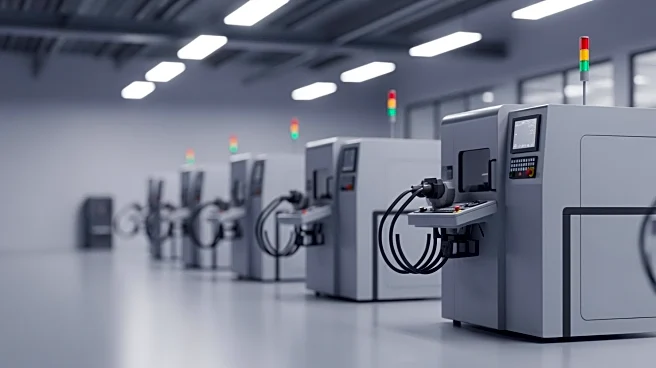What's Happening?
Manufacturers are being encouraged to focus on reducing energy consumption during non-production hours to improve profit margins. The energy consumed by idle equipment, such as motors, compressors, and
control panels, represents a significant cost without contributing to output. This 'silent' consumption is becoming increasingly important as energy prices remain high and carbon disclosure expectations tighten. By implementing precise, continuous energy monitoring, manufacturers can identify and address unnecessary energy use, thereby closing efficiency gaps. The article highlights that manufacturers who treat their consumption data with the same rigor as production data are leading in cost and carbon management.
Why It's Important?
The reduction of idle energy consumption is crucial for manufacturers facing high energy costs and stringent carbon emission regulations. By addressing this issue, manufacturers can achieve significant cost savings and reduce their carbon footprint. For example, a 15% reduction in idle energy use can save approximately £23,000 annually and remove 17 tCO2e from a company's carbon footprint. This not only improves financial performance but also enhances compliance with environmental standards. As energy costs remain volatile, manufacturers who invest in energy monitoring and management will likely outperform their peers in cost control and sustainability reporting.
What's Next?
Manufacturers are advised to integrate energy monitoring into their operational governance to achieve sustained savings. This involves using existing data to establish a baseline for energy use during non-production hours and sub-metering key systems like compressed air and HVAC. By setting alerts for unusual energy consumption patterns, companies can proactively address inefficiencies. Regular review of energy trends and incorporating baseload reduction into key performance indicators can further enhance energy management. As energy costs and environmental scrutiny increase, manufacturers who prioritize energy monitoring will strengthen their resilience and competitiveness.
Beyond the Headlines
The shift towards rigorous energy monitoring reflects a broader trend in manufacturing towards data-driven decision-making. By treating energy management as a data discipline, manufacturers can not only reduce costs but also improve operational transparency and credibility. This approach aligns with growing demands for sustainability and accountability in supply chains. As customers increasingly scrutinize supply-chain emissions, manufacturers who demonstrate proactive carbon management will likely gain a competitive edge.









